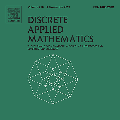We study the query complexity of quantum learning problems in which the oracles form a group $G$ of unitary matrices. In the simplest case, one wishes to identify the oracle, and we find a description of the optimal success probability of a $t$-query quantum algorithm in terms of group characters. As an application, we show that $\Omega(n)$ queries are required to identify a random permutation in $S_n$. More generally, suppose $H$ is a fixed subgroup of the group $G$ of oracles, and given access to an oracle sampled uniformly from $G$, we want to learn which coset of $H$ the oracle belongs to. We call this problem coset identification and it generalizes a number of well-known quantum algorithms including the Bernstein-Vazirani problem, the van Dam problem and finite field polynomial interpolation. We provide character-theoretic formulas for the optimal success probability achieved by a $t$-query algorithm for this problem. One application involves the Heisenberg group and provides a family of problems depending on $n$ which require $n+1$ queries classically and only $1$ query quantumly.
翻译:我们研究量子学习问题的质询复杂性,使神灵形成一个组合$G美元的统一矩阵。在最简单的例子中,人们希望确定一个神器,我们发现一个以组字符表示的美元query量子算法的最佳成功概率的描述。作为一个应用程序,我们显示,需要用$Omega(n)来随机确定一个以美元为单位的调整。更一般地说,我们假设,美元是该组的固定分组的美元(G美元),并获得统一来自$G美元的一个神器样本。我们想了解什么是神器的合金。我们称之为这一问题的混合识别,并概括一些众所周知的量子算法,包括Bernstein-Vazirani问题、范大坝问题和有限的场多调调。我们为这一问题提供个性学公式,以便用美元quelistal算法实现最佳成功概率。一个应用程序涉及海森贝格组,只提供一个问题家族,根据美元+美元查询法需要1美元。





